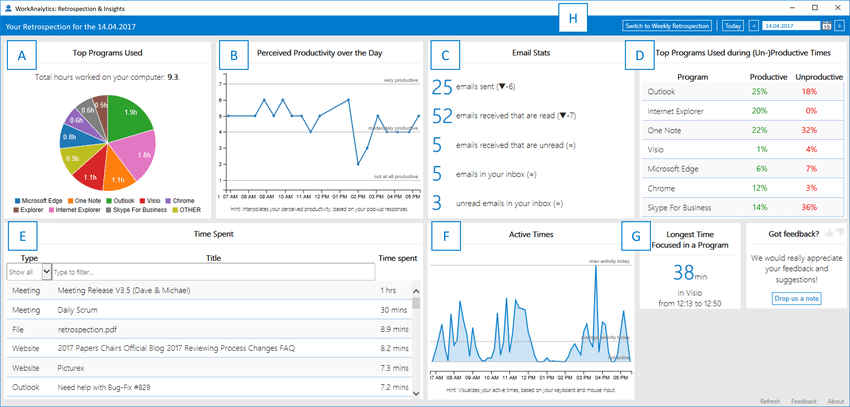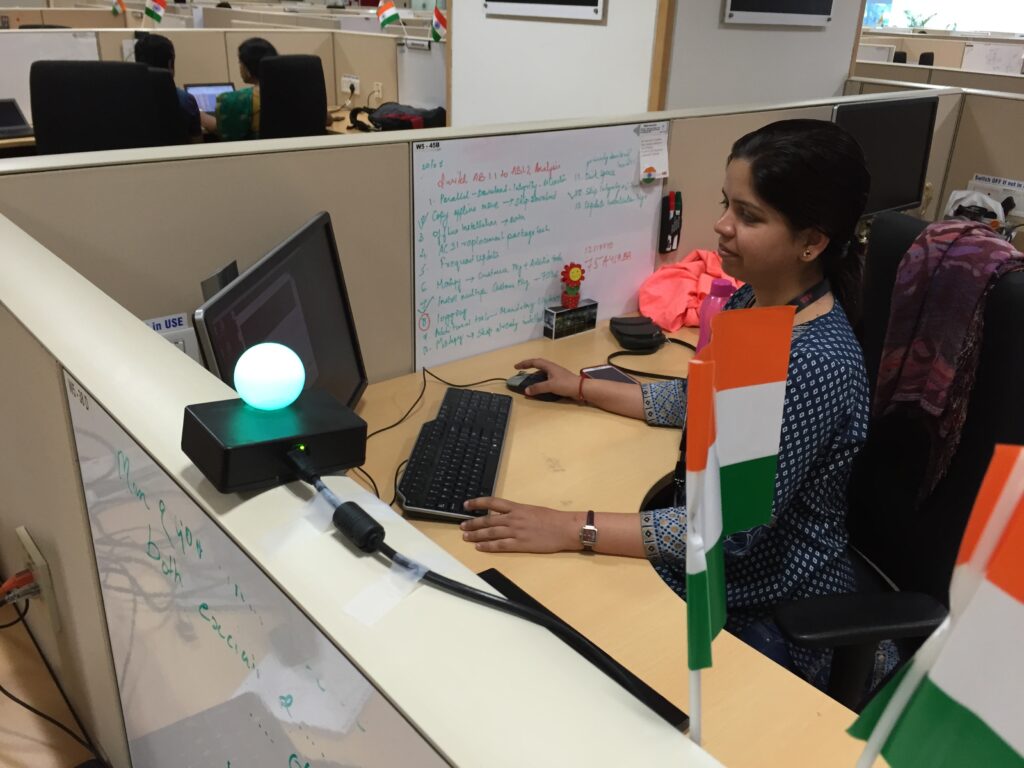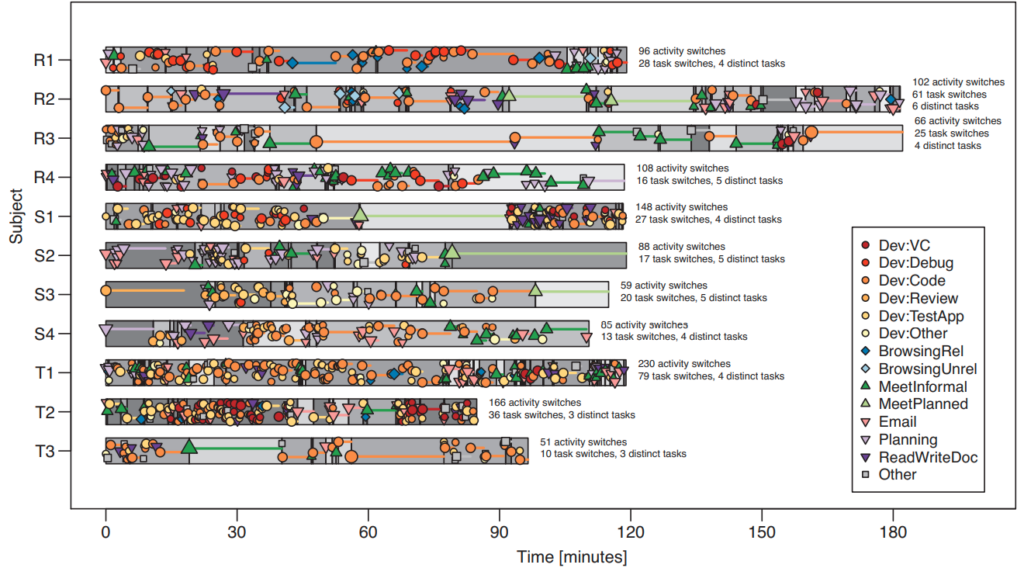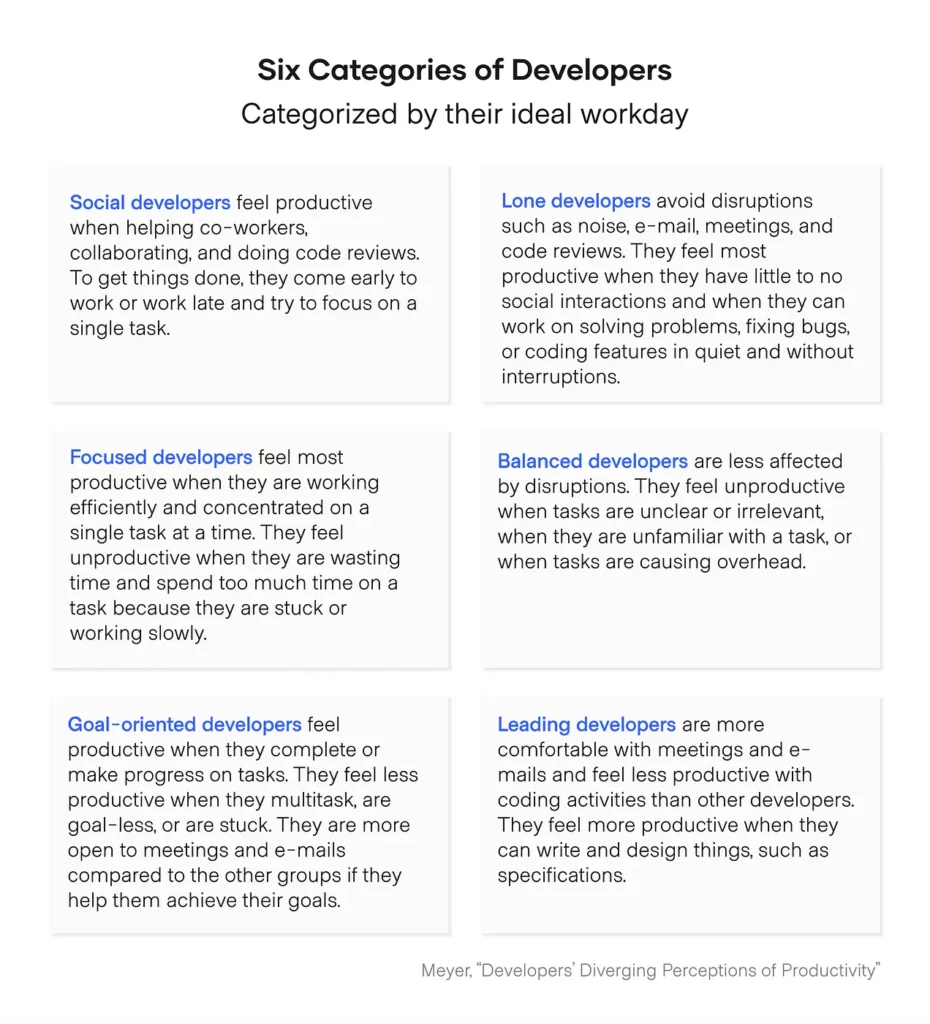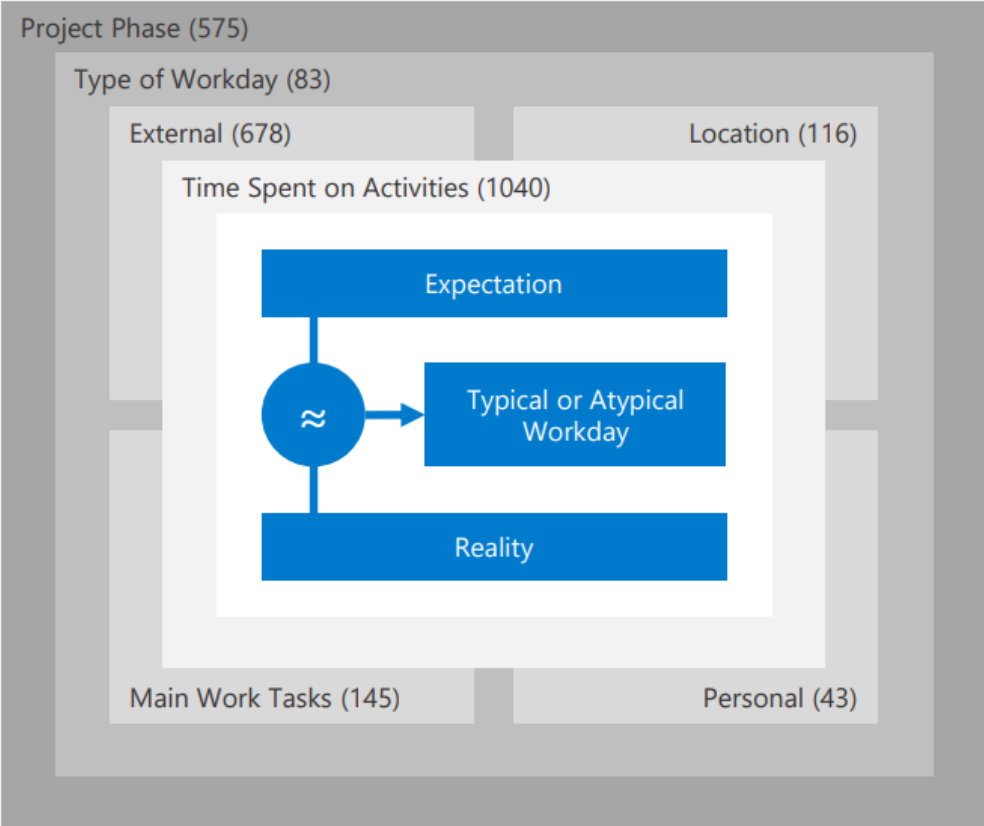Individual Productivity – Personal Analytics
Understanding software developers’ productivity, and devising approaches to allow developers to identify productive behavior changes through retrospection and self-reflection that fosters productivity and focus at work.
What is Personal Analytics?
Personal Analytics project was originally initiated by André N. Meyer and Prof. Dr. Thomas Fritz from HASEL at the University of Zurich (UZH). Our goal is to build a self-monitoring tool that knowledge workers (e.g. developers, designers, administrators) install on their computer and that allows them to get insights into their work and productivity, and come up with positive behavior changes. The basis are a number of computer interaction trackers (e.g. application usage, emails/meetings, user input) and biometric trackers (e.g. Fitbit, Polar, Garmin, Muse, Tobii) that non-intrusively track data, store them locally on the users machine (to avoid privacy issues!) and then visualize them in a daily/weekly summary, the retrospection.
Anyone is welcome to extend PersonalAnalytics with new trackers or improve existing ones. Feel free to use PersonalAnalytics to get insights into your own work habits, or use it for research studies. In case you re-use PersonalAnalytics, make sure to cite our work.
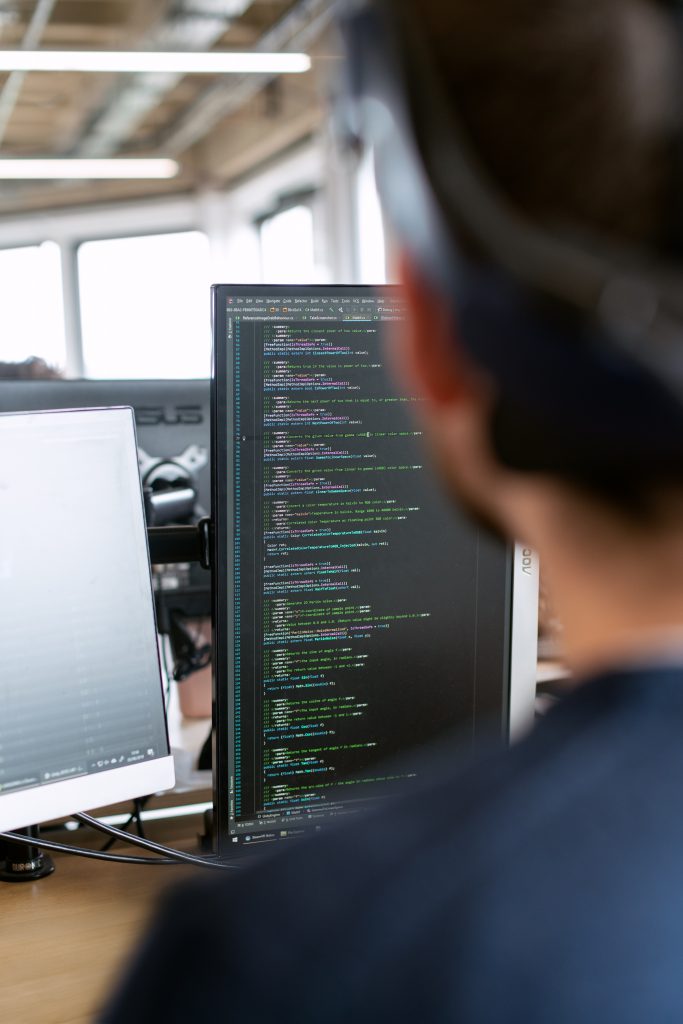
Selection of Blogs referencing our Research
- How to foster software developer productivity (Patrick Anderson, Tasktop, 07.08.2018)
- At Work, Lights That Ward Off Interruptions(Daniel Akst, The Wall Street Journal, 19.05.2017)
- FlowLight flashes red when workmates should leave you alone ‘in the zone’(Alan Boyle, GeekWire, 05.05.2017)
- Rote Ampel gegen störende Arbeitskollegen(V. Blank, 09.05.2017, 20min)
- How to Prevent Interruptions at Work (Brianna Steinhilber, NBC News, 05.05.2017)
- Red light, green light invention stops work interruptions(05.05.2017, UBC)
- Light which glows red when workers are ‘in the zone’ invented to stop disturbances by colleagues (Sarah Knapton, The Telegraph, 05.05.2017)
- Go ahead, interrupt my day (Alan Burdick, The New Yorker, 05.05.2017)
- FlowLight is an office traffic light system that let’s co-workers know when you’re too busy to talk (Luke Dormehl, DigitalTrends, 02.05.2017)
- Dude. Let’s sing Happy Birthday later. His red light is on. (Nancy Owano, TechXplore, 01.05.2017)
- Traffic lights for your desk can tell colleagues if you’re really working hard (Stacy Liberatore, MailOnline, 28.04.2017)
- Un dispositif lumineux pour gérer le travail (Alexandra Brutsch, Le Matin du Soir, 01.05.2017, in French)
- Sensible new gizmo is aware of whenever you’re busy, provides co-workers a sign to bugger off (Tech.Rizlys, 03.05.2017)
- Desk traffic lights show when you’re too busy for interruptions(Matt Reynolds, 28.04.2017, New Scientist)
- Fostering Flow at Work (David Shepherd (Co-Author), 03.05.2017)
- Software Developer Times on factors impacting software development productivity (Gail Murphy (co-author), 10.12.2015)
- ACM Webcast: Improving Software Development Productivity Minute-by-Minute (Gail Murphy (co-author), 20.01.2016)
- TechTarget on Measuring software developer productivity (Valerie Silverthorne, 21.01.2016)
Additional material for paper: Design Recommendations for Self-Monitoring in the Workplace: Studies in Software Development (CSCW’18)
- pre-print of the paper
- Access WorkAnalytics (self-monitoring tool used in the study) (also called PersonalAnalytics)
- Supplementary Material (questionnaires, screenshots etc)



